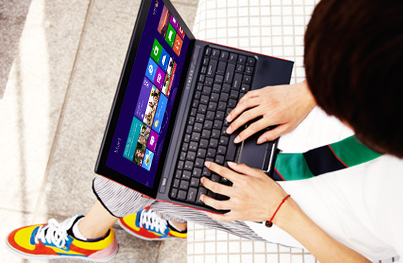Microsoft: More than 100 million Windows 8 licenses sold

Microsoft officials said on May 6 that Microsoft has surpassed the 100 million Windows 8 licenses sold milestone -- a number on par with the number of Windows 7 licenses the company sold in its first six months on the market.

(Windows 8 and Windows RT went on sale on October 26, 2012. So the exact six-month mark was April 26, which was 10 days ago.)
"If there had been more touch devices in the market, it would have been even more," said Tami Reller, the Chief Financial Officer of Microsoft's Windows client team. That said, "our sell-through has been consistently going up," Reller added.
Reller said to expect the touch hardware situation to start to improve more in July, the kick-off of this year's back-to-school selling season. By holiday season 2013, Microsoft expects there to be a full assortment of screen sizes, form factors and differently priced Windows 8 and Windows RT devices in market, she said.
Microsoft officials said they sold more than 40 million copies of Windows 8 the first month it was commercially available. On January 8, 2013, Microsoft officials said the company had sold 60 million licenses of Windows 8 to date. The bulk of the additional 40 million Windows 8 licenses sold since January have been on new PCs (as opposed to upgrades), given that most of the Windows 8 upgrade deals expired in January, Reller said.
Microsoft's "licenses sold" numbers are "sell in" numbers. That means these figures include sales of licenses to OEMs, as well as Windows 8 upgrades. They don't include copies of Windows 8 sold via volume-licensing agreements. The "licenses sold" numbers may or may not also include Windows RT license numbers. (Microsoft officials won't say.)
The minute that a PC rolls off the manufacturing line with a new version of Windows on it, it is counted as a "license sold," Reller explained.
Microsoft sold more than 100 million licenses of Windows 7 in its first six months, company officials said back in June 2010. At that time, they called Windows 7 "the fastest selling operating system in history."
It's worth repeating that Microsoft's "licenses sold" numbers are totally different from usage share data. Based on usage statistics from various firms, Windows 8 still lags substantially both Windows 7 and Windows XP, in terms of usage at the moment. Microsoft officials declined to provide usage share data for Windows 8.
More Microsoft milestones, commitments
Reller shared some additional Windows 8-related numbers during a meeting I had with her at Microsoft's New York City headquarters on Monday, May 6.
She said the Windows team has delivered 739 updates for Windows 8 and Windows RT in the six-plus months since those operating systems were made generally available. These updates have included everything from battery-life improvements, to drivers, to security fixes.
There are more than 60,000 Windows Store/Metro Style apps for Windows 8 and Windows RT available now, Reller also said. The Softies believe they will have Windows Store/Metro Style versions of the "majority" of top Android and iPad apps available in the Windows Store by holiday 2013. And there have been more than 500 updates to the first-party (meaning Microsoft-developed) Windows 8 and Windows RT apps in the Store since Windows 8 and Windows RT launched in late October 2012.
Reller reiterated Microsoft's commitment to improving the retail experience for consumers looking to buy new PCs and tablets running Windows 8. She said that even though Microsoft invested more than ever on retail at the end of 2012 -- by both training salespeople about Windows 8 and creating a standardized Windows 8 demo -- all this "still wasn't even close to enough."
"We were smart, but not smart enough" about how users would approach the PC and tablet-buying experience at places like Best Buy, Staples and other retail outfits.
Reller said Microsoft will be doing more with its retail partners, first for the back-to-school buying season, but especially by the holidays. There will be more of a focus on creating specific sales experiences for tablets, touch laptops, convertibles and all-in-ones, she said.
Microsoft also will be changing its incentive programs for retail stores so that salespeople will be compensated for touch, 100 percent, when it comes to consumer sales. Microsoft also will continue to build out more of its own Microsoft brick-and-mortar stores, but will be focusing more on smaller, storefront style spaces, she said.